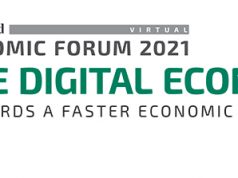The customer-centric story of disruption
By Mark Louis F. Ferrolino, Special Features Writer
In a trajectory of rapid improvements, buoyed by disruptive technologies, consumers are becoming more demanding and discriminating. Emerging technologies provide companies a multitude platform to unleash new level of customer relationship and re-examine their purpose in an increasingly competitive market. Although disruption opens new opportunities for both start-ups and the incumbents, it remains less attractive to some industry players who need to adapt new business model to stay ahead of the digital curve.
Innovations, particularly in banking, retail and services sectors, have transformed monetary transactions into an immersive financial experience that goes beyond the traditional processes. The emergence of Artificial Intelligence (AI), E-Commerce and cashless transactions brings consumers more secure, faster and more convenient transaction options.
During the recent BusinessWorld Economic Forum held at Grand Hyatt Manila in Taguig City on May 18, Bangko Sentral ng Pilipinas (BSP) Managing Director of Inclusive Finance Advocacy Office and Concurrent Head of Financial Consumer Protection Pia Bernadette Roman-Tayag explained how disruptions in financial system can help achieve financial inclusion by reaching the unbanked and by eradicating misconceptions on the services that banks offer.
“Disruptions are able to improve services for currently served population,” Ms. Roman-Tayag said. “But it is transformational in the effect that it can have for the unserved or never served before, and that is where the opportunity lies.”
Ms. Roman-Tayag shared that 554 out of 1,634 or 34% of cities and municipalities in the country do not have a banking office. Also, citing the BSP Financial Inclusion Survey in 2015, she shared that 47% of Filipino adults have outstanding loans, and 72% of them borrow from informal sources.
These people are paying high prices from informal lenders for thinking that financial services from banks are expensive, in addition to the fact that some of them don’t have enough funds to open an account or don’t have the necessary documentation required by these institutions.
“That’s exactly right for disruption. That’s exactly what technology can bring to these misconceptions or perceptions or realities of the unbanked,” Ms. Roman-Tayag said. “Technology is there, the demographic is just waiting for all this new technology to come in, for disruptors to come in. The currently served market is still your market to improve products, but then, the game will be on the transformation, will be on the unserved market.”
While disruption provides banks the opportunity to position themselves in reaching the untapped market, they are also facing challenges to stay competitive — still brought by disruption. New technologies and alternative payment methods are ramping fast, pushing financial technology (fintech) companies to gain momentum while leaving traditional banks behind.
According to Edwin R. Bautista, president and chief executive officer (CEO) of Union Bank of the Philippines (UnionBank), banks in the age of disruption have only two choices: digitize or perish.
Mr. Bautista shared that as fintechs gain a strong foothold in the industry, there’s an implication for banks, like UnionBank, to later lose their market share.
“After thinking of these, our board told the management: ‘Is it time to just sell the bank?’ How should a bank or how could a bank respond? At UnionBank, our answer after a long soul search was we fight fire with fire, technology with technology,” Mr. Bautista said, noting that fintechs do not have a monopoly of technology and there is no reason for banks to use the same technology.
In response, UnionBank arrived at a plan to transforming the bank into a bank that is digital to the core; it started its digital transformation journey to avoid being disrupted.
While heading its way to join industry disruptors, Mr. Bautista said that they run into two realizations: one, banks can play the role of a disruptor too; and two, the best way to avoid disruption is to disrupt oneself. “This way, we can at least fear ourselves to a more desirable outcome,” he said.
The BSP, playing its mission to promote and maintain price stability, a strong financial system, and a safe and efficient payments and settlements system in the country, is creating the enabling policies and regulatory environment so banks can use financial technologies, can become fintechs themselves, can disrupt themselves or be at equal footing as other disruptors in the industry.
Ms. Roman-Tayag said that BSP is leveling up the playing field in terms of other fintechs that need to be licensed with the BSP such as e-money issuers and virtual currency exchanges. “With this, we get to create an ecosystem where we can develop trust and certainty in the market which is what the people are really looking for,” Ms. Roman-Tayag added.
To keep customers engage in this age of disruption, Adobomall Founder and CEO Walt Steven Young identified three points: to tell stories that create authenticity, to continuously create more innovations, and to constantly measure results.
Mr. Young said that in this age, everybody has the capabilities of creating technology. “At the end of the day, your customers will see a lot of technologies in front of them. What sets you apart is because you have a story that you are grounding your ideas to,” he said, adding that having a unique story would help companies create connection that generates customer engagement.
Furthermore, technology and innovation create new experiences, thus measuring its impact or results would help companies judge what seems to be effective that might be changed in the next days.
“You may be disrupting now, but maybe in a few months, in a few weeks, you’re no longer a disruptor, you’re a traditional business,” Mr. Young said. “Never stop innovating. It is the name of the game now.”
As observed, all disruption-led changes focus on customer centricity and personalization of customers’ experience. And as companies are making their transition into the disruptive marketplace, some of them are now leveraging on AIs and technologies that help them gain more intelligence about their customers. This, according to Accenture, Inc. (Philippines) Country Managing Director Lito Tayag, allows companies to identify customers’ pain points and predict their preferences.
One technology trend that is growing its reach in today’s landscape is called citizen AI. Mr. Tayag said that as AI grows in capabilities and its impact on people’s lives, businesses must raise their AI to act as responsible productive members of society.
“With these opportunities, we see a new era unfolding. The era of applied intelligence, the era of breakthrough collaborations between humans and machines as it ushers the revolution that is the intelligent enterprise. In this new synergy, it is expected that Artificial Intelligence shall become integral in enabling people to scale up productivity and ultimately bring more and further innovations to business and society,” Mr. Tayag said.
And as the country prepares for the impact of AI and other advanced technologies to benefit the society, Mr. Tayag said that it should result in inclusion for the country, including financial inclusion of the unbanked, access to payments, access to lending, and access to investment.



